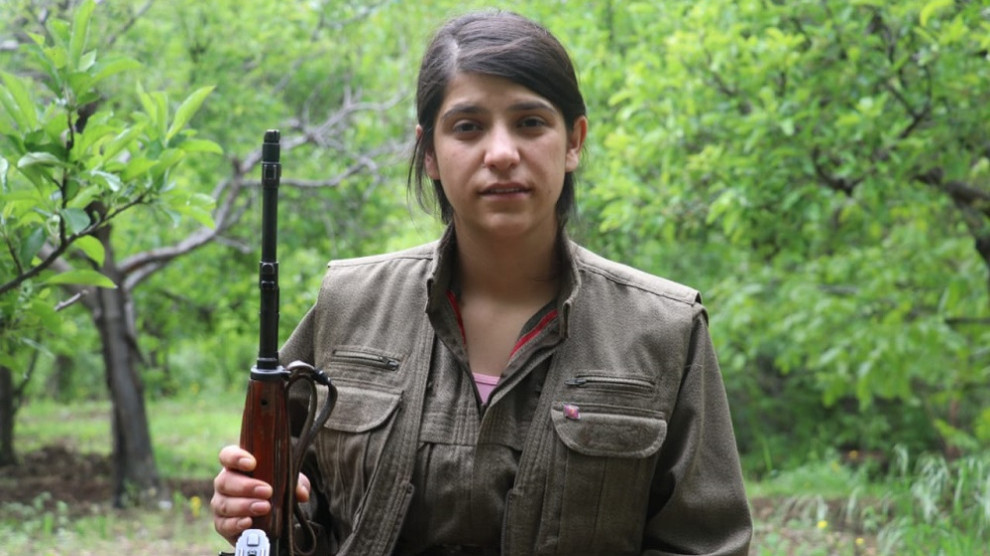Guerrilla Amara Roj, one of those who left their mark in Heftanîn
The cultural assimilation and physical genocide imposed on the Kurds for centuries continues through the employment of all imaginable techniques.
The cultural assimilation and physical genocide imposed on the Kurds for centuries continues through the employment of all imaginable techniques.

Assimilation, torture and persecution have risen to an extreme, especially in North Kurdistan. Besides the special war sophisticated technologies and tools, the media are also used in the most professional and devious way. All institutions and state structures are at the service of this special war.
The only purpose of the latest technological methods, subliminal messages and the most vulgar torture methods is to create a new and Kurd-less memory and being. The State wants a Kurdish model that has no Kurdishness at all. This is one of the reasons for the brutality employed against the self-government resistance in North Kurdistan from 2015 onward.
However, the sultan’s edict was not only against the Kurdish youth who resisted to it, but also against the guerrillas in the mountains.
Here too the government found an incredible resistance waiting for it.
One of these young people defending the mountains was guerrilla Amara Roj, who fell martyr on the Qesrok hill in the Partizan area on 19 June. She was born in Malazgirt, Muş. Like many young people of Kurdistan, she did not remain silent about the injustice, persecution, oppression she saw in her country, and decided to join the young people of Kurdistan who lost their life for the sacred cause and went to the mountains.
Guerrilla Amara Roj, who joined the ranks of freedom in 2015, explained the reason for her choice as follows:
"One of our relatives set his body on fire in prison for our President [Ocalan] on 15 February [1999]. I was very impressed by his determination and will. Besides, the revolution and war in Rojava attracted me to the ranks of freedom. In the guerrilla I was impressed by companionship and the building together in every area of life.”
Amara, from Serhat, must have taken her resistance from Serhat's rebellious mountains. She fought heroically against an army. Not only that, she was also a representative of Serhat's dengbej tradition that sustained the Kurdish culture.
Guerrilla Amara was one of those who took refuge in song and poetry. While most of us could not find words to talk about martyrdom, she used to sing songs for the martyrs. She would gather everyone around her singing whenever she had the opportunity to do so.
Her clear and sincere voice absorbed the human and was the voice of the revolution.
The voice of Amara echoed in Partizan, another place for guerrillas who were brothers in the Cudi mountains and fought in Heftanîn.
Guerrilla Amara left a mark in Heftanîn with the songs she sang with her sincere voice for a martyr comrade as well as with her resistance.